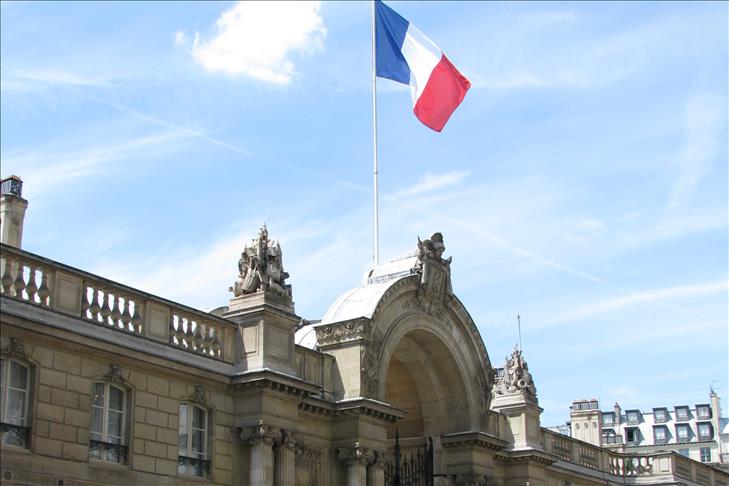
By Hajer M'tiri
PARIS
Human rights groups have warned that France's proposed "anti-terror" bill, which would grant more powers to the intelligence services, puts the country in danger of NSA-style mass surveillance powers, creating an undemocratic state.
Campaigners have said the proposals will produce a "deja-vu" effect, effectively creating a French version of the NSA, the United States’ intelligence body.
Protesters gathered on Monday in front of the French parliament as lawmakers started discussing the bill which will allow intelligence agents to directly monitor citizens' personal phone and internet traffic.
Many demonstrators were holding signs reading "Je suis sur ecoute" (I am tapped), "#UnfollowMe", "Protect our freedoms" and "Je ne suis pas un terroriste" (I'm not a terrorist).
"The main issue of this bill is that the intelligence services will install a black box for internet and communication operators – as they say to detect suspicious acts – yet they will hold massive personal data," says Adrienne Charmet, a spokesperson of French internet rights group La Quadrature du Net.
‘Everyone under surveillance’
Charmet says the bill, which will be voted on in May, is a threat to fundamental civil rights.
"We are speaking about mass surveillance; everyone will be under surveillance... This snooping bill is just a NSA 'deja-vu'," she says.
Charmet added: "It is totally undemocratic and un-republican to vote for such a law in France just two years after the revelation by Edward Snowden of the NSA's mass surveillance."
The bill was approved last month by the French Council of Ministers.
Prime Minister Manuel Valls has defended the bill, which could force communication companies to sift through clients’ phone and internet data, saying it would not allow "mass surveillance and will not be a ‘French Patriot Act’" – a reference to post-September 11 U.S. anti-terror legislation.
Valls said that such a law was "necessary" and France was "one of the last democracies not to regulate its intelligence services by law."
The bill gives intelligence agencies the power to have real-time access to connection data, content of emails, key log-ins and phone or mobile geo-location data without seeking permission from a judge.
It calls also for the creation of a new administrative body, the National Committee of Intelligence Technical Control, composed of nine members, including four judges, four MPs and a specialist in electronic communication, which will be particularly responsible for verifying the compliance of monitoring measures.
French Interior Minister Bernard Cazeneuve told Liberation newspaper on Monday "the measures proposed are not aimed at installing generalized surveillance ... it aims to target people who we need to monitor to protect the French people.”
However, campaigners reject this defense: "The government is representing the bill as if it will allow it to counter terrorism, disregarding the fact that it will give intelligence services unlimited right to wiretap your car, your house without your knowledge, install communication recording devices in public spaces... by the principle of 'capturing everything and sorting it out later,’" claims Charmet .
"This bill creates a lasting and secretive system to control citizens and entrusts the executive powers with virtually unlimited use of it. As such, it is unacceptable," she adds.
'Threat' to journalists and NGOs
Human rights NGOs including Amnesty International and Reporters Without Borders have warned that the bill "has the potential to chill free expression, and could be subject to serious abuse... for those who work on sensitive issues and rely on confidential sources, including journalists and human rights organizations."
Christophe Deloire, secretary-general of Reporters Without Borders, says the law must include safeguards for the right of journalists to work without being spied on, or else it "will constitute a grave violation of media freedom."
"The government must restore protection for the confidentiality of journalists’ sources by bringing reference to a judge back into the established procedures," he adds.
Amnesty International says the bill "would pave the way for extremely intrusive surveillance practices with no judicial pre-authorization."
"The surveillance practices envisaged in the draft legislation would give the French authorities extremely broad surveillance powers running against fundamental principles of proportionality and legality, which ought to govern all restrictions on the right to privacy and free speech," says Dominique Curis, a campaigner at Amnesty International France.
Anadolu Agency website contains only a portion of the news stories offered to subscribers in the AA News Broadcasting System (HAS), and in summarized form. Please contact us for subscription options.







